In her childhood in Srinagar’s Gogjibagh, the Sufiana was just a routine and mother tongue a top priority. This love for the culture could not fade away even after she married a Pakistani cousin and settled in the US. Saima Bhat meets Asmat Ashai, the Meem Sahab behind the Funkar International, IBM’s offshore forays, and who campaigned for years with the Coke Studio Pakistan to record a Kashmiri number
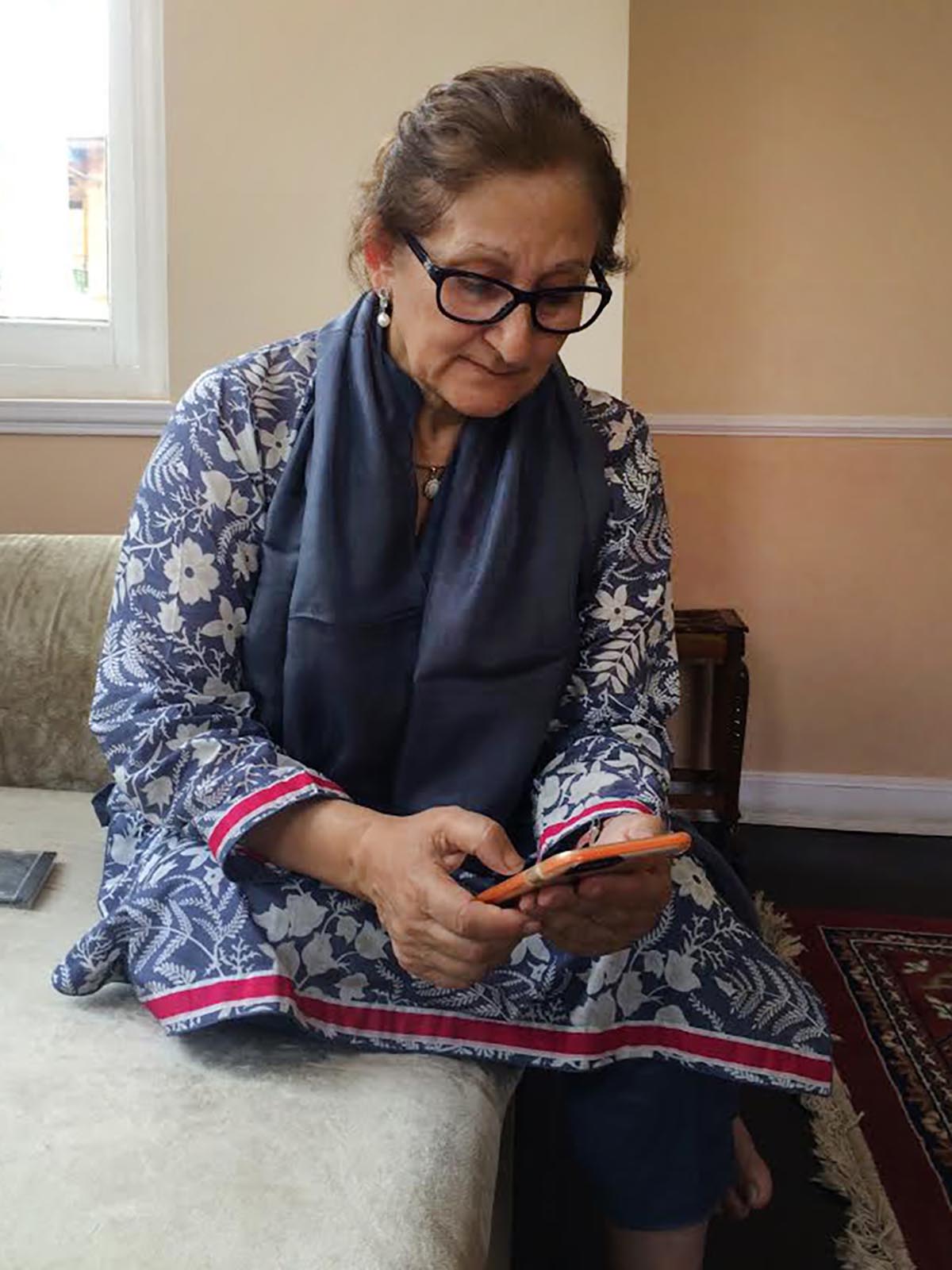
Asmat Ashai
In the Late eighties; the abnormality had just started indicating its existence. As the situation deteriorated beyond control, many found their new addresses outside Jawahar tunnel. The people who had already left had no option of coming back to see their families or relatives. The conflict had its impact.
Far away from their soil and the difficulties in getting a visa, the Kashmiris living abroad had their own desperation. Fear of losing the touch from their roots and its impact on the new generation was making them uneasy.
The most restive was a lady in her thirties, Asmat Ashai, who wanted to keep her children closer to Kashmir, her roots.
To begin with, in 1989, she started a youth camp for Kashmiri Americans in New York, at a farm, and introduced history and cuisine of Kashmir. When the target group started hanging out and was receptive to her teachings, an encouraged Asmat decided to continue with it.
For the next two years, she hosted youth camps at her home where around 60 teenagers started living with her: boys in the basement, girls in the second floor and her family in the first floor. Later it became an organised affair, amidst the wazwan preparations, speakers thronged her camp. Gradually it emerged as an address for the new generation, most of whom had not even visited the home of their parents.
After the history and Wazwan was over, the camp started to have cultural programmes. This necessitated digital recordings, but they could not find any. The option left was to have their own records. The first she remembers was Dil Chooran Hai Nue (The thief stole my heart).
It was this small initiative, that in 1999 was registered as an NGO, Funkar International. The aim she says was to keep the Kashmiri language alive in America by connecting Kashmiris living there and preserve and promote Kashmiri folk art, music, and language. She believes this was the way to introduce Kashmir in America.
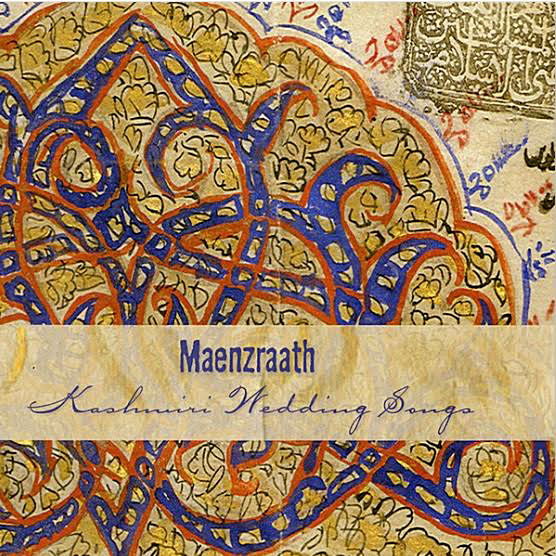 Asmat was not alone; she had the support of a few others to make this a success. “Thanks to the generous support of a few members of the Kashmiri-American community, we were able to raise funds to produce Saaz Tih Awaaz, the first digital format recording of Kashmiri folk music greats Ghulam Hassan Sofi, Raj Begum, and Naseem Akhtar,” Ashai said.
Asmat was not alone; she had the support of a few others to make this a success. “Thanks to the generous support of a few members of the Kashmiri-American community, we were able to raise funds to produce Saaz Tih Awaaz, the first digital format recording of Kashmiri folk music greats Ghulam Hassan Sofi, Raj Begum, and Naseem Akhtar,” Ashai said.
Asmat says for Kashmiri Americans, the Urdu language does not make any sense. It could be either English or Kashmiri so her camps kept all youth closer to their mother language.
The beginning was made by recordings with some instrumentalists and then with the voice of non-Kashmiris. “The aim was to make young people realise that our language also has some value,” Asmat said. “So if they want to speak any other language, Kashmiri could be an option and they should feel proud of it.”
Calling her journey great, Funkar’s first work was named Saazuk Safar (the journey of the music), and then they did Saaz Te Awaaz (music and sound) in 1999.
She did not keep it to oldies only but she wanted to give it to generation next so she got young artists. She started with Sarmadiya Shafi, who was introduced in the late 90’s.
Next, they did Badam Fulai (instrumental only) with an aim to introduce Kashmiri music to people who are not Kashmiris, to make them understand Kashmiris have distinct music which has different instruments. “So they can pick it, listen to it and feel it.”
She intervened to have a musical version of Awrade Fatihiya. She roped in a group of Ronnie Malley, a Chicago native of Palestinian descent who is a multi-instrumentalist, and Qadi Ismael, and travelled with them to most of the shrines like Khankah e Maula (Srinagar), Baba Reshi (Tangmarg), so to give them a feeling of Kashmiri shrines. When their project was complete they used a little bit of duff, little music. It is available online.
“It gave it a new kind of life so that we could save it for next generation otherwise they will lose it. It was better to do it in a way where everybody could listen to it,” Asmat insisted.
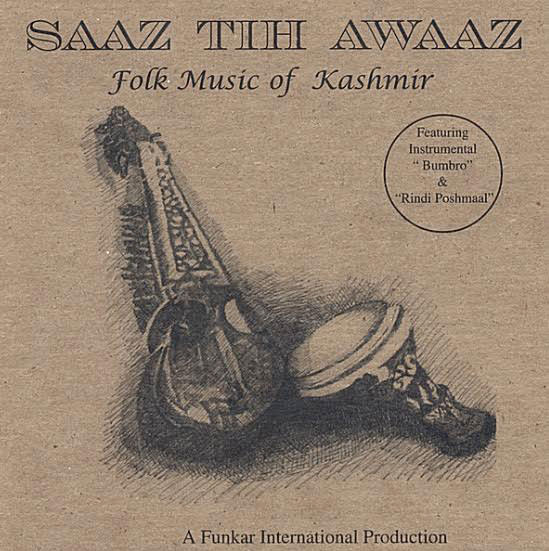
She does not keep it specific to Kashmiri artists only. For Rabaab uk Hubab (the love of Rabab), Asmat got Habib Wardak, an Afghan American rabab player, from America to Kashmir in May 2013, for six weeks, for the Rabab workshop with students and then a concert in Kashmir University. “After the concert we made it sure that we write it in Kashmiri so that it doesn’t become just a CD to listen but something that has a language, which has a script and can be read as well,” Asmat said. “We write it in Kashmiri and then in English as well.”
During his stay, Wardak and Asmat collaborated with a local Mizraab School of Music. He created a curriculum for the school and introduced the use of western notation for all instruments.
Funkar International works globally. It has the privilege of last Sufiyana music CD recorded in Belgium.
Later, the list included Mainz Raat (wedding songs), Nikah Nama, which is a very unique thing and only happening in Kashmir. For this CD, Asmat used her parents Nikah Nama as its cover.
Love of roots was coupled by the love for music. The combo backs to her childhood days when her parent’s room would turn into a studio every morning at 9.15 am in Gogji Bagh. “We always had Raj Begum, Naseem Ji and Hassan Sofi playing in other room. That was the time I and my sister used to get ready for our school and then college. I believe that rooted love for music and culture in me.”
Asmat and her sister, Nighat were among very few Muslim girls who could do their schooling in a missionary school, Presentation Convent. At school, it was mandatory for them to speak in English. Back home they had to speak in Kashmiri otherwise they would get beaten by her maternal grandfather, Ghulam Ahmad Ashai, who was the first registrar at the University of Kashmir.
“He was a strict man. He made us collect dried leaves or clean up waste pipe. That time we couldn’t understand him and felt offended but now I understand actually he wanted to teach us the dignity of labour,” Remembers Asmat. She says it was because of this attitude that she never hesitated while working at home.
Asmat says her family used to go for long boat rides with Sufiyana musicians like Tibat Bakaal. “I think music was in born. We inherited it from our parents and grandparents.”
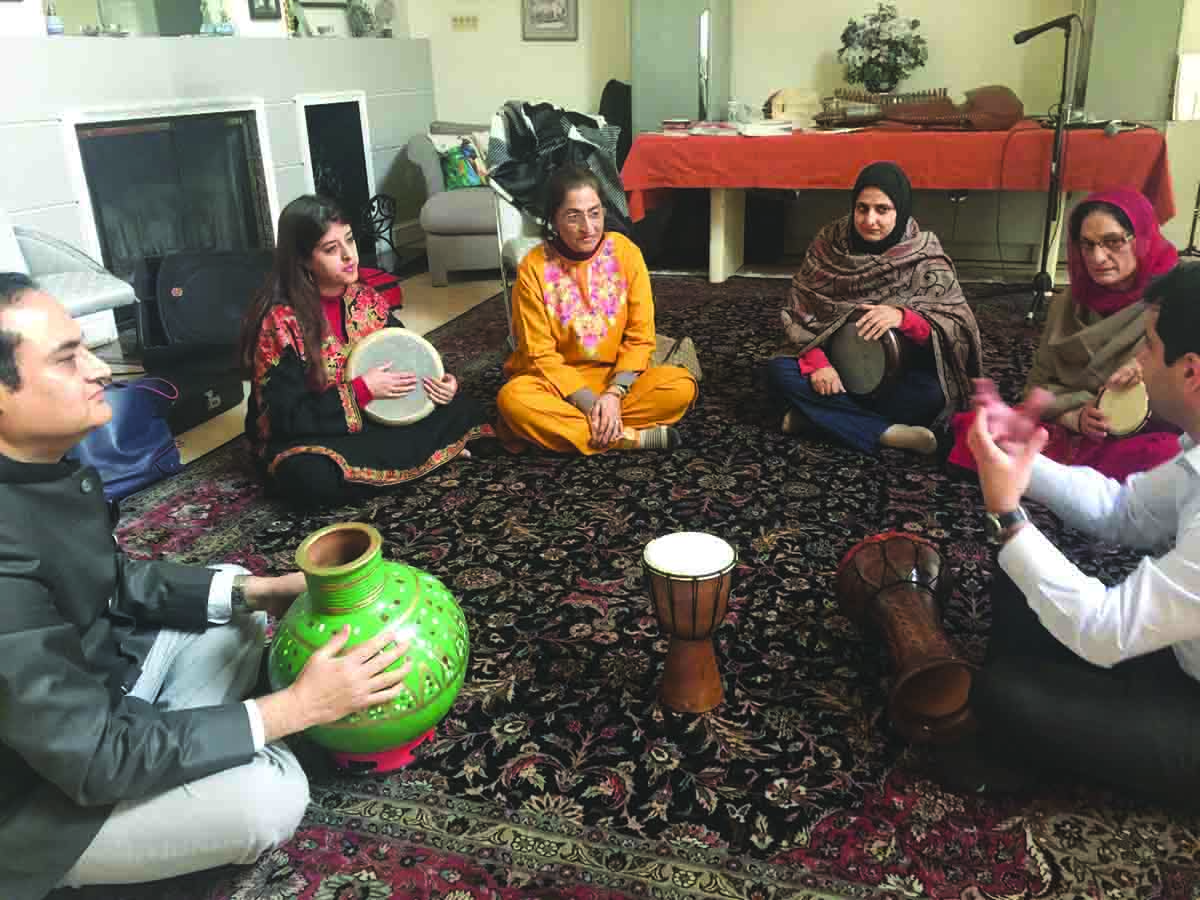
Asmat Ashai with others practicing Kashmir folk music.
And her paternal grandfather Abdul Aziz Mir Drabu was a renowned landlord in Pulwom (she was very peculiar to call all names with their correct Kashmiri pronunciation) district. She says he was a patron of folk music and Bandh Pather.
In college, Asmat then Asmat Drabu, was a president, captain of the hockey team and participated in every drama passionately. An arts graduate she was married to her Kashmiri born Pakistani first cousin, Showkat Ashai in 1974.
“I had never seen him because they were never allowed to return,” Asmat regretted. But because of her college principal, Miss Mehmooda, she was given a passport in 1970 and they could visit her would-be-husband. “While we were in Pakistan hijacking (in 1971) of aeroplane took place and we had to return as all borders were sealed between India and Pakistan.”
In the meantime, there was no communication between Showkat and Asmat and they couldn’t marry for four years. “We were planning to get married in Kabul, which was a safer place then. Ultimately after the intervention of late Sheikh Sahab, who intervened at the highest level and managed through Indira Gandhi to get a special visa for Showkat’s family.”
Finally, Showkat along with his family and uncle were in Kashmir and they got married. Soon after, they left for America, where Showkat, a doctor by profession, was doing his residency, in Johns Hopkins Hospital, Baltimore, Maryland, in the USA.
In America, Asmat had no work visa but after she had her children: daughter, who is a lawyer now, and son, who is business graduate, turned six and four years, she went back to school where she did her MS in special education (from Johns Hopkins University). As her husband used to remain busy for most of the times, Asmat volunteered for schools, counselling centres and a Sunday exclusive Islamic school, where her children used to study.
In 1988, she was elected as first Muslim president of Indian Muslim Association but she decided to resign soon after as the conflict started in Kashmir. “That was the last I could travel with my kids to Srinagar,” She remembers.
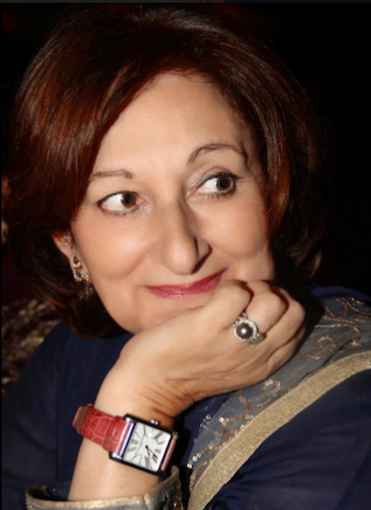
Asmat Ashai
Asmat also taught Kashmiri in a Berlitz language school for two years where she worked with two American linguists and one Britain linguist, who helped her to write Kashmiri scripts. “That was the best experience of my life, to look at my own language because I realised how complicated it is,” She says with a sense of proud and achievement. “It was the most fascinating experience to see your language through a foreigner, it was absolutely mind-blowing.”
Asmat used to teach them music too. Her class always had a tumbakhner, and when her students used to get stressed, they used to sing on it. She believes the best way to teach a language is through music.
Claims that the Kashmiri language is dying makes Asmat sick. “It will never die but the fact that the young people who know the language will not speak it. That gives me a sense of insecurity and loss,” she explains. “Every time I see a little boy or a girl speaking Kashmiri I just hug them and tell them how much it means to me.”
Asmat’s daughter, who is also a board member of Funkar, introduced her to world musicians. But when she was a kid, she was introduced to the Kashmiri language through music only. Asmat says her daughter was just thirteen years old when she sang in front of 500 people a Kashmiri song Mei Kair Chai Kith Posh Daswaanai, for which she was appreciated as well.
With the help of her daughter and other board members, Asmat was able to do first Kashmiri music concert in the USA in April 2015 where she introduced three young musicians from Kashmir, who were joined by two other musicians from Chicago. They performed in six US cities, Washington DC, Ellicott City MD, New Rochelle NY, Los Angeles CA, Dallas TX and Buffalo NY.
Irfan, Bilal and Mahmeet (IBM) came to the US for the first time. Habib Wardak and George joined them in all the Concerts. Habib played the Rabab and George accompanied them on Tumbakhnaer. Irfan and Bilal are multi-instrumentalists. Bilal has been playing flute and Harmonium. Irfan plays the Guitar, Rabab, Oudh and Tumbakh. Mahmeet Syed is an accomplished vocalist.
“They had talent but I made it sure they get dressed properly for an audience that sees art differently,” Asmat said. “Parents get upset when they see poorly dressed people singing, so we cleaned up the image, we did bow ties and black shirts and pants. Actually, we wanted Kashmir to be seen with different light.” Asmat says they were peculiar that the language and instruments used should be only Kashmiri.
That concert, Asmat says was a success. After the concert, her team made it sure the Kashmiri singers meet and interact with American musicians. “Introduction is very important so that others would judge them as musicians.”
After that the three musicians performed in elementary, middle and high schools in Washington. After schools, they were introduced at Dallas University as well. They were later introduced to Russian musicians as well, who play the Cello. They learnt it and meanwhile, Asmat herself learnt to play Santoor from an Iranian, who had come to the concert.
Seeing the response in the USA, the IBM got their sponsors who wanted to take them to Australia and then to Dubai.
Hoping to take Funkar to next level, Asmat was literally desperate to take it to the level of Coke Studio, Pakistan. Last time she was in Pakistan, she met the team. She also suggested them to play with Kashmiri and Dogri music.
“I am literally over the moon today. For five long years I planned to have it done by Coke Studio,” Asmat said after the Coke Studio released Altaf Mir’s Hou Gulu, last week. “The intention was to promote and introduce Kashmiri music on this prestigious platform.
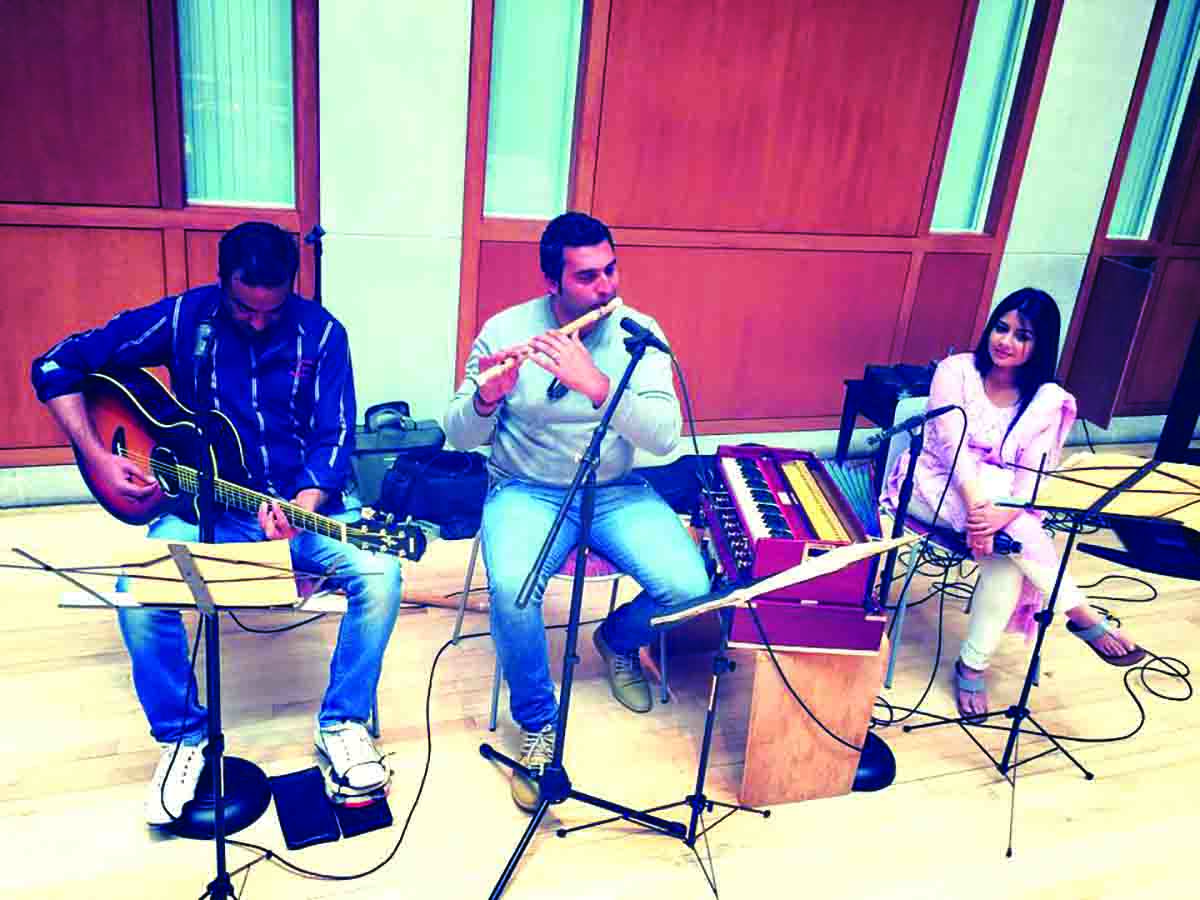
Irfan, Bilal and Mehmeet performing in US.
Asmat said she had gone with a request to the CEO of Coke Studio “to have a closer look at our music”. It took five years, she said, but it finally happened. “I had originally planned to have the song sung by artists from both sides of the border. That, however, did not mature due to the prevailing situation between the two countries.”
Last this reporter met the culture activist in 2016; she said her next project is recording the Khatam Shariefs of all shrines in Kashmir, with a coffee table book on Muslim shrines of Kashmir. “Every Shrine has its particular Khatam and I want to record and preserve them.”
After that, she is going to do Kashmiri books for children which have to be illustrated. “World class illustration so that young children pick up a book and say we want to read this, it should not be disfigured. And another book of songs for children.”
Funkaar International did another music workshop in Maryland USA in January 2017, in which instructions in Santoor, Rabab and Tumbakh were sought from local experts.
Asmat gets saddened to see state giving preference to handicrafts and tourism only at the global level. “We have a lot to give in terms of culture, and music,” She said. And when she reaches at Srinagar airport, hearing an announcement in other languages and then signboards across Kashmir which are written in English or Hindi or Urdu also saddens her.
“Why can’t they do it in Kashmiri when at every airport, across the globe they do announcements in local languages. Mostly Kashmiris travel through this airport, there could be somebody’s grandparents who don’t understand English or Hindi or Urdu.”
Asmat says she doesn’t blame a young generation for ‘culture onslaught’ in Kashmir as they didn’t have the chance. Last time she had taken a video from city to show it to her students, but she was disheartened when they pointed “why there are no signboards in Kashmiri.”
She says these small things catches one’s attention “That is why I got Irfan and Bilal to change their stream of rock music to Kashmiri exclusive only. And see today they are successful.” She believes this is the way to introduce Kashmir in America and the world over. Importantly she says “this way I can preserve my distinct Kashmir culture.”
from Kashmir Life https://ift.tt/2A9TYZ7
via IFTTThttps://kashmirlife.net
No comments:
Post a Comment